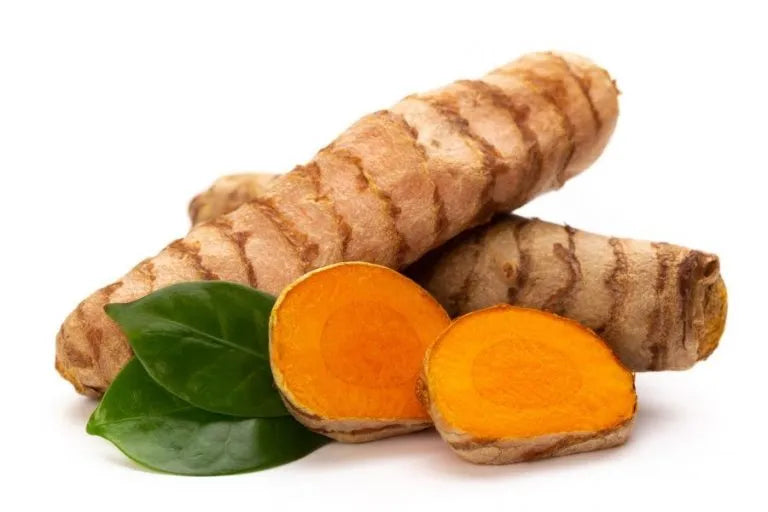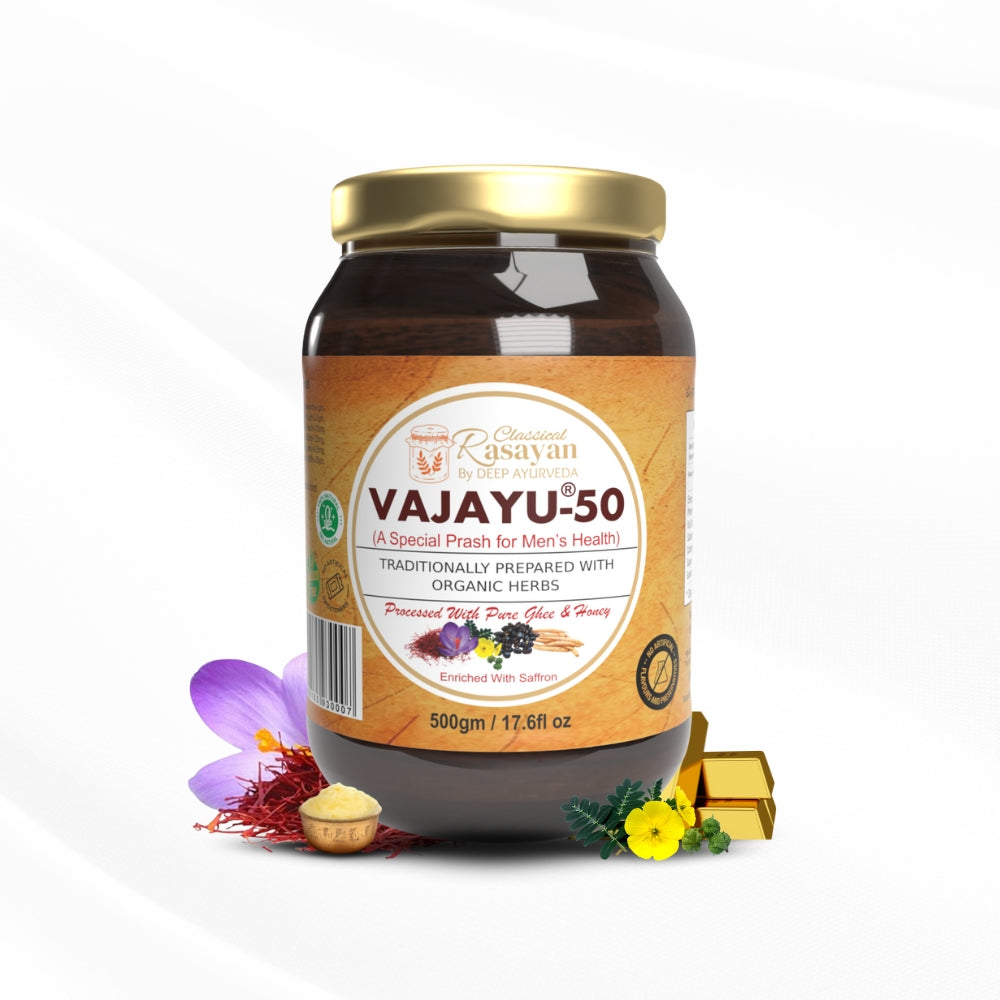Ayurvedic Herbs
Haridra
Haridra, commonly known as Haldi or Turmeric, holds a special place in Indian culture and Ayurveda. Widely used in spiritual rituals and traditional ceremonies like the Haldi function in Indian weddings, it symbolizes purification and prosperity. Revered as "Haridra", "Nisha", or "Gauri", this golden spice is more than a culinary ingredient—it is a powerhouse of medicinal benefits used for centuries in Ayurvedic healing. In Ayurveda, Haridra is revered for its powerful antibacterial, antifungal, and anti-allergic,anti cancerous properties. It is widely used in skincare formulations to promote glowing, healthy skin and to manage various skin disorders. In this blog, we will explore the multiple effects of Haridra on our body—ranging from its powerful healing properties for the skin to its role in boosting immunity, supporting digestion, and balancing the doshas in Ayurveda. Ayurvedic Properties of Haridra Scientific Name-Curcuma longa Family-ZingiberaceaeRasa (Taste): Tikta (Bitter), Katu (Pungent)Guna (Qualities): Laghu (Light), Ruksha (Dry)Virya (Potency): Ushna (Hot)Vipaka (Post-digestive effect): Katu (Pungent)Dosha Action: Pacifies Kapha and Pitta Karmukta- Krimighna – Anti-parasitic and antimicrobialKusthaghna – Useful in treating skin disordersVishaghna – Detoxifying; neutralizes toxinsVarnya – Improves complexion and skin glowShothaghna – Reduces inflammation and swellingVedanasthapana – Analgesic; relieves painLekhaniya – Scrapes away excess fat and ama (toxins)Jwaraghna – Antipyretic; helps reduce feverKandughna – Relieves itchingRaktashodhaka – Purifies the blood Classical Ayurvedic Text References of Haridra हरिद्रा तिक्ता कटुका उष्णा लघ्वी कफवातजित्। कुष्ठशोथविषघ्नी च कन्यकाऽग्न्यनिलापहा॥Haritakyadi Varga, Shloka 163 Haridra is bitter and pungent in taste, hot in potency, and light to digest. It pacifies Kapha and Vata doshas. It is highly effective in skin disorders (Kushta), inflammation (Shotha), and acts as an excellent antidote to toxins (Vishaghni). It also improves digestion and appetite, and alleviates gynecological issues. Benefits Of Haridra 1. Natural Blood Purifier Haridra (Turmeric) is widely recognized in Ayurveda as a powerful Raktashodhaka (blood purifier). It helps eliminate toxins (ama) from the blood, balances Pitta dosha, and supports healthy skin and liver function. In the modern view, turmeric’s active compound curcumin exhibits strong antioxidant and anti-inflammatory properties, which help in detoxifying the blood, improving circulation, and protecting tissues from oxidative damage—supporting its traditional use as a natural blood purifier. 2. Acts as Anti Bacterial and Anti microbial agent Haridra (Turmeric) is well known in Ayurveda for its Krimighna and Vishaghna properties, meaning it helps destroy harmful microbes and neutralize toxins. It is commonly used in treating skin infections, wounds, and allergic conditions due to its natural antibacterial and antimicrobial action. From a modern scientific perspective, turmeric contains curcumin, which has been proven to inhibit the growth of various bacteria, fungi, and viruses. 3. Anti-Allergic and Anti-Inflammatory Haridra (Turmeric) is praised in Ayurveda for its Shothaghna (anti-inflammatory) and Kandughna (anti-itching/anti-allergic) properties. It helps in calming allergic reactions, skin rashes, and inflammatory conditions by balancing Pitta and Kapha doshas. In the modern view, turmeric’s active compound curcumin exhibits strong anti-inflammatory effects by inhibiting inflammatory enzymes like COX-2 and reducing histamine release, which plays a key role in allergic responses. This makes Haridra highly effective in managing allergies, asthma, eczema, and joint inflammation naturally. 4. Improves Digestion In Ayurveda, Haridra (Turmeric) is known to enhance digestion through its Deepana (appetizer) and Pachana (digestive) properties. It stimulates Agni (digestive fire), reduces Ama (toxins), and helps in managing digestive disorders like bloating, indigestion, and worm infestation. Haridra also balances Kapha and Vata, which are often involved in gastrointestinal disturbances. 5. Heals Wounds In Ayurveda, Haridra (Turmeric) is valued for its Vranaropana (wound-healing) and Raktashodhaka (blood-purifying) properties. It is applied topically to promote faster healing, reduce swelling, prevent infection, and support tissue regeneration. Its antiseptic, anti-inflammatory, and astringent actions help cleanse wounds and enhance natural healing.From the modern perspective, turmeric’s active compound curcumin accelerates wound healing by reducing inflammation, stimulating collagen production, and fighting microbial infections. Its antioxidant effect protects the wound area from oxidative stress, supporting quicker and cleaner healing—validating its traditional use in treating cuts, burns, and skin injuries. 6. Acts As Anti Diabetic Owing to its Tikta (bitter) and Katu (pungent) taste, Ushna Virya (hot potency), and Kapha-Medohara properties, Haridra helps reduce excess Meda (fat) and Kapha, which are primary culprits in type 2 diabetes.From a modern standpoint, Curcumin, the active compound in Haridra, exhibits insulin-sensitizing, anti-inflammatory, and antioxidant effects. It enhances glucose uptake, reduces insulin resistance, and lowers oxidative stress, thereby helping in glycemic control and preventing diabetic complications such as neuropathy and nephropathy 7. Acts as Anti Cancerous In Ayurveda, Haridra is revered as a “Vishaghna” (antitoxic) and “Krimighna” (antimicrobial) herb with potent detoxifying and tissue-cleansing properties. It is traditionally used to purify Rakta (blood), eliminate Aama (toxins), and regulate cellular metabolism, which are considered key in preventing the abnormal growth of cells or Arbuda (tumors).Modern research supports Haridra’s anti-cancerous potential, primarily due to its active compound Curcumin. Curcumin exhibits antioxidant, anti-inflammatory, anti-proliferative, and pro-apoptotic effects. It has been found to inhibit the growth of various cancer cells, including breast, colon, prostate, lung, and skin cancers, by disrupting cancer cell signaling pathways, inducing programmed cell death (apoptosis), and preventing angiogenesis (formation of new blood vessels in tumors). 8. Acts as Natural Antioxidant In Ayurveda, Haridra is known to purify the blood, remove Ama (toxins), and enhance Rasa and Rakta Dhatu (plasma and blood tissues), which contributes to better tissue nourishment and disease resistance. Its Tikta (bitter) and Katu (pungent) taste, combined with Ushna Virya (hot potency), helps in neutralizing oxidative stress by enhancing cellular metabolism and eliminating metabolic waste. From a modern scientific perspective, the active compound Curcumin in Haridra acts as a powerful antioxidant. It scavenges free radicals, boosts the body’s own antioxidant enzymes like glutathione, and prevents oxidative damage to DNA, lipids, and proteins. 9. Menstrual & Uterine Support Haridra balances Pitta and Kapha, which are often involved in menstrual imbalances. From a modern view, Curcumin, the active compound in Haridra, exhibits anti-inflammatory, antispasmodic, and hormone-regulating effects. It helps reduce uterine cramps, pelvic pain, and symptoms associated with PCOS, endometriosis, and fibroids. Its gentle action also supports post-partum uterine recovery and hormonal balance without disrupting the natural menstrual cycle. 10. Helpful in Joint Disorders Haridra, with its Tikta-Katu Rasa, Ushna Virya, and Deepana-Pachana (digestive and toxin-clearing) properties, helps in digesting Ama, reducing inflammation, and relieving stiffness and swelling in joints. It also acts as a Shothahara (anti-inflammatory) and Vedanasthapana (pain-relieving) herb, making it ideal for chronic joint disorders. From a modern medical view, Curcumin in Haridra has shown strong anti-inflammatory effects by inhibiting inflammatory mediators like COX-2 and TNF-alpha. Studies suggest that Curcumin can be as effective as some non-steroidal anti-inflammatory drugs (NSAIDs) in reducing pain and improving joint mobility in arthritis, without the side effects commonly associated with synthetic drugs. Conclusion Haridra is more than just a kitchen spice—it is a time-tested Ayurvedic herb with profound healing potential. Integrating Haridra into daily life—through diet, herbal formulations, or external applications—can help you experience its remarkable benefits for immunity, digestion, skin, and overall well-being. Haridra offers holistic wellness backed by both ancient Ayurvedic wisdom and modern science. Incorporating this sacred herb into daily life—whether through diet, supplements, or external application—can be a natural step toward better health and vitality. Let Haridra be your daily ally in the journey toward balance, strength, and inner healing.
Read more


